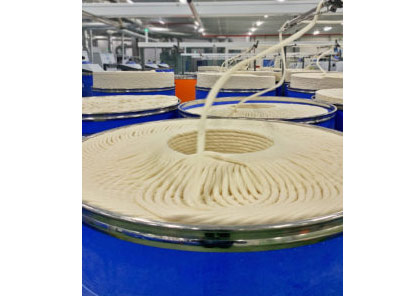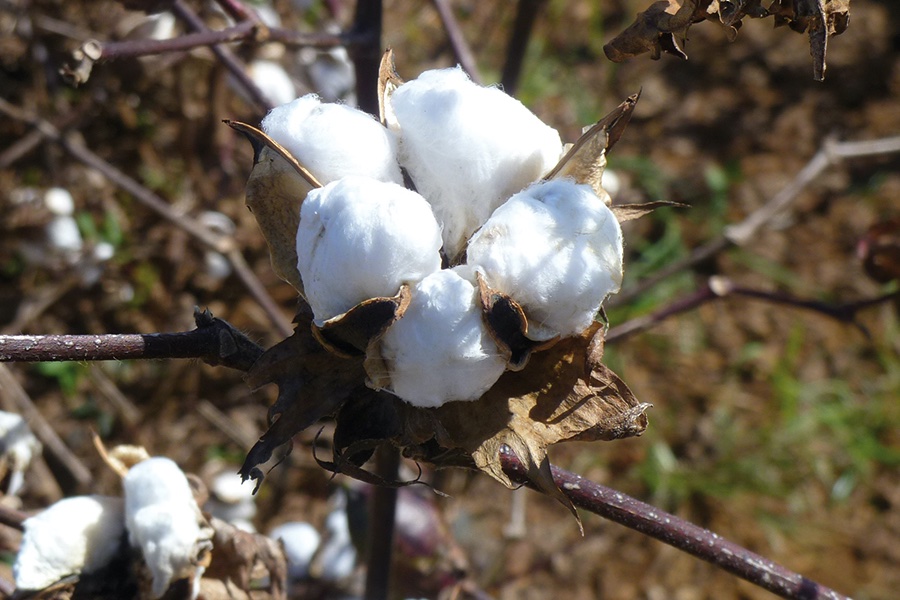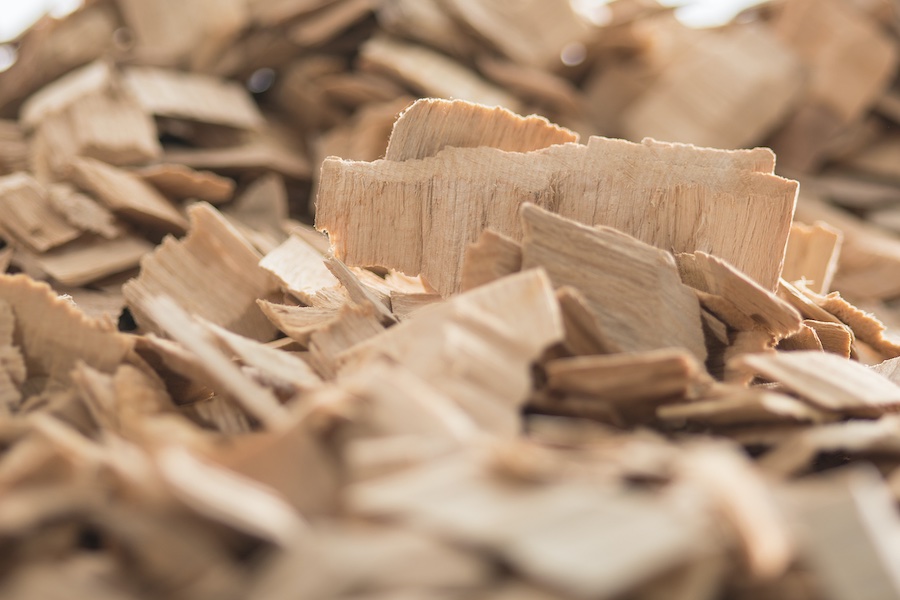#Raw Materials
Technical advancement secures the future – cotton processing procedures
Technical Progress is Gaining Momentum
Cotton processing procedures are becoming more and more productive and intelligent. This is illustrated by a series of lectures by representatives from the fields of textile research and textile machine manufacturing on production processes. On both conference days there will be a session chaired by Stefan Schmidt. Schmidt is a long-standing advisor for science and technology at the Industry Association for Finishing, Yarns, Fabrics and Technical Textiles (IVGT), Frankfurt, Germany.

Among others, the presentations include the following:
Innovative Products from Recycled Raw Materials
Stephan Baz is Head of the Staple Fibre Technology Division in the Research and Development Department of the German Institute for Textile and Fibre Research (DITF), Denkendorf, Germany. “How does recycled raw material behave during spinning?” Baz discusses this question in his lecture and includes cotton, polyester and technical fibres made of carbon. Based on the respective properties of the raw materials, he presents concepts for converting recycled raw materials into new yarns and innovative products for special applications.
Spinning Fibres into Quality Yarns with a High Proportion of Short Fibres
“Spinning with a high short fibre content” is the topic of an informative lecture by Harald Schwippl. Schwippl is Head of Technology and Process Analytics at machinery manufacturer Rieter AG, Winterthur, Switzerland. He presents the results of a technical study for a rotor spinning process to produce yarn from cotton with high short fibre content and/or admixtures of short-staple noils. The rotor process offers improvements in the area of yarn nonuniformity compared to conventional processes and reduces production costs.
Improved Carding Technology for More Quality and Production Performance
Ralf Müller is Head of Research and Development in the field of spinning technology at textile machinery manufacturer Trützschler GmbH & Co. KG, Mönchengladbach. In the carding process, the cotton fibres are aligned following a pre-cleaning process. In his presentation, Müller presents a new method for ensuring that the carding gap between the cylinder and flat clothing is as small as possible. Intelligent sensor technology ensures that the carding gap is automatically set within the machine and kept constant. A minimal carding gap previously not achieved in practice creates new potential for increasing the quality and productivity of carded cotton.

Minimising Cotton Contamination Before Processing
Oswald Baldischwieler, Product Manager Online Systems at Uster Technologies AG, Uster, Switzerland, presents the results of a five-year practical study of the Total Contamination Control System (TTC) in 236 spinning mills in nine major textile producing countries including China, India, Bangladesh, Indonesia, Pakistan, Turkey and Vietnam. The TTC offers 24/7 online quality monitoring at all relevant stages within the spinning process. Ultimately, even the smallest contamination can lead to considerable quality impairments. Uster assumes that contamination in cotton deliveries is not likely to decrease, but rather increase in the future.
Less Hairiness with Fine-Thread, High-Quality Ring-Spun Yarn
Stuart Gordon is a Senior Scientist with the Commonwealth Scientific and Industrial Research Organisation (CSIRO) in the Agriculture and Food Division based in Waurn Ponds, Victoria, Australia. Controlling the hairiness of ring yarns is an important research focus within ring spinning. There is great interest in the spinning sector in reducing undesirable hairiness and any resulting pilling effects in yarns using new techniques at low investment costs. A new unit presented by Stuart Gordon makes this possible.





canva-900-1-1-1.jpg)










